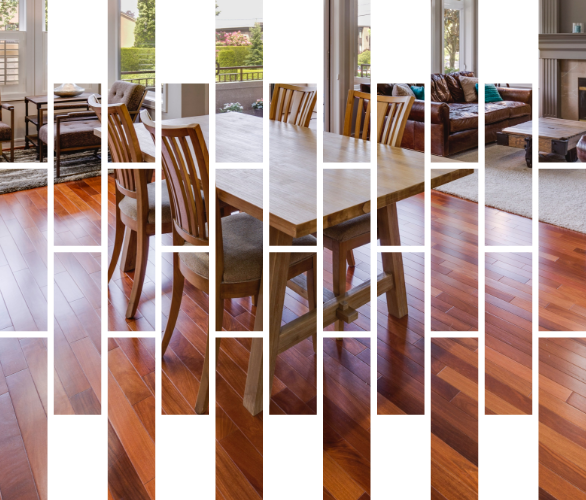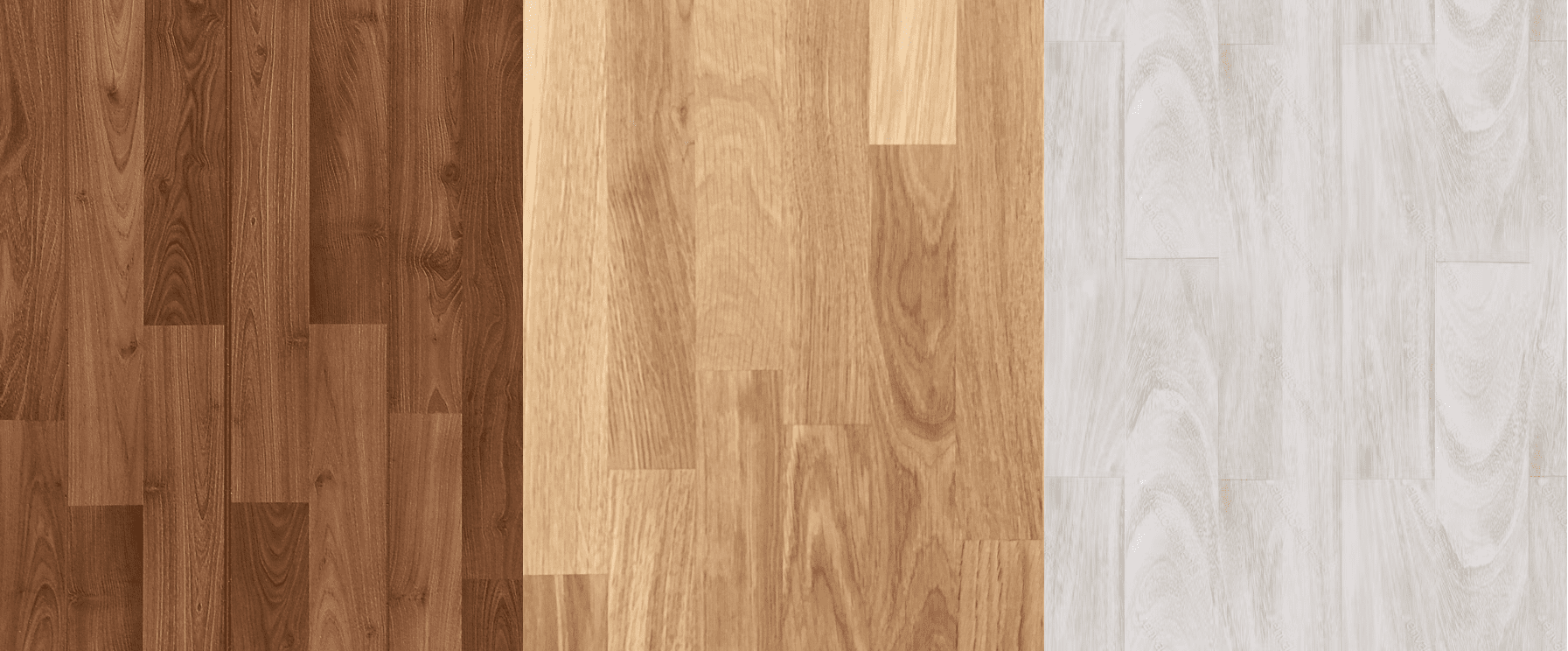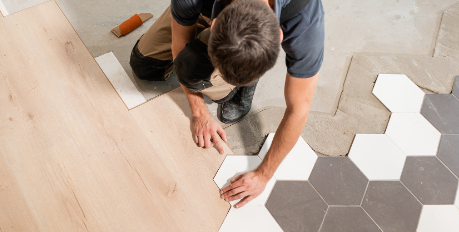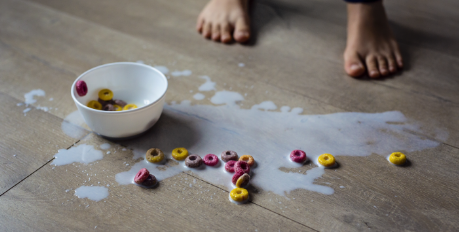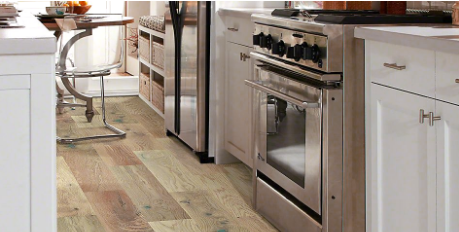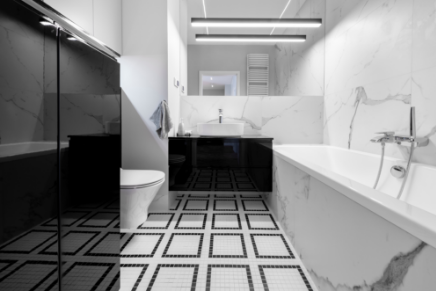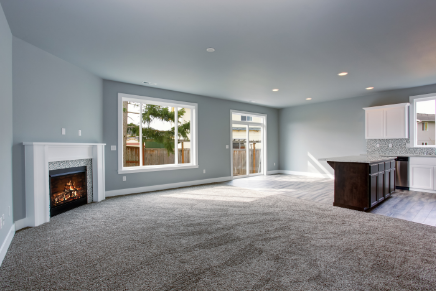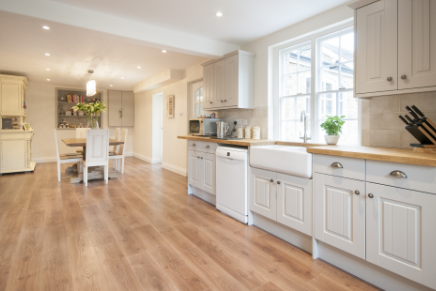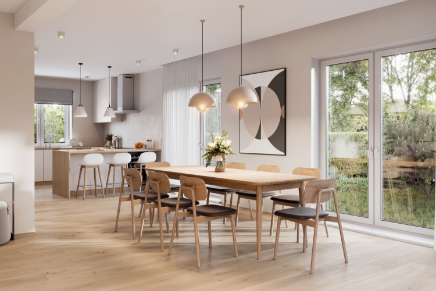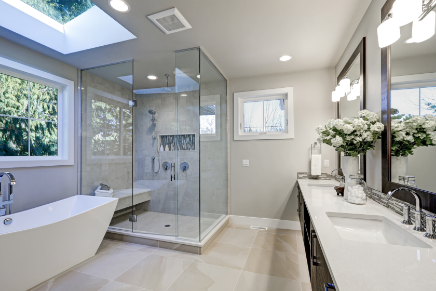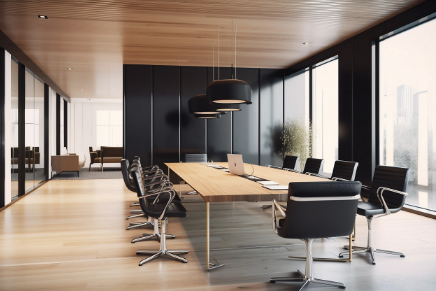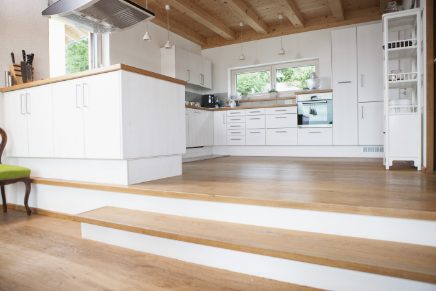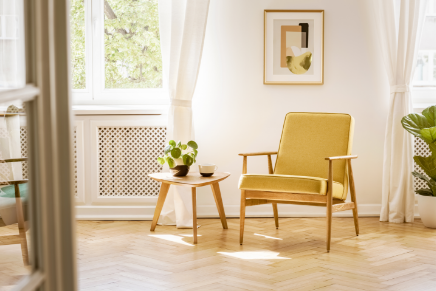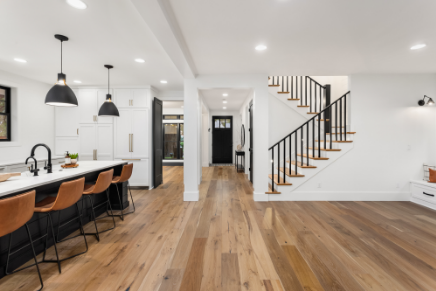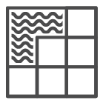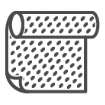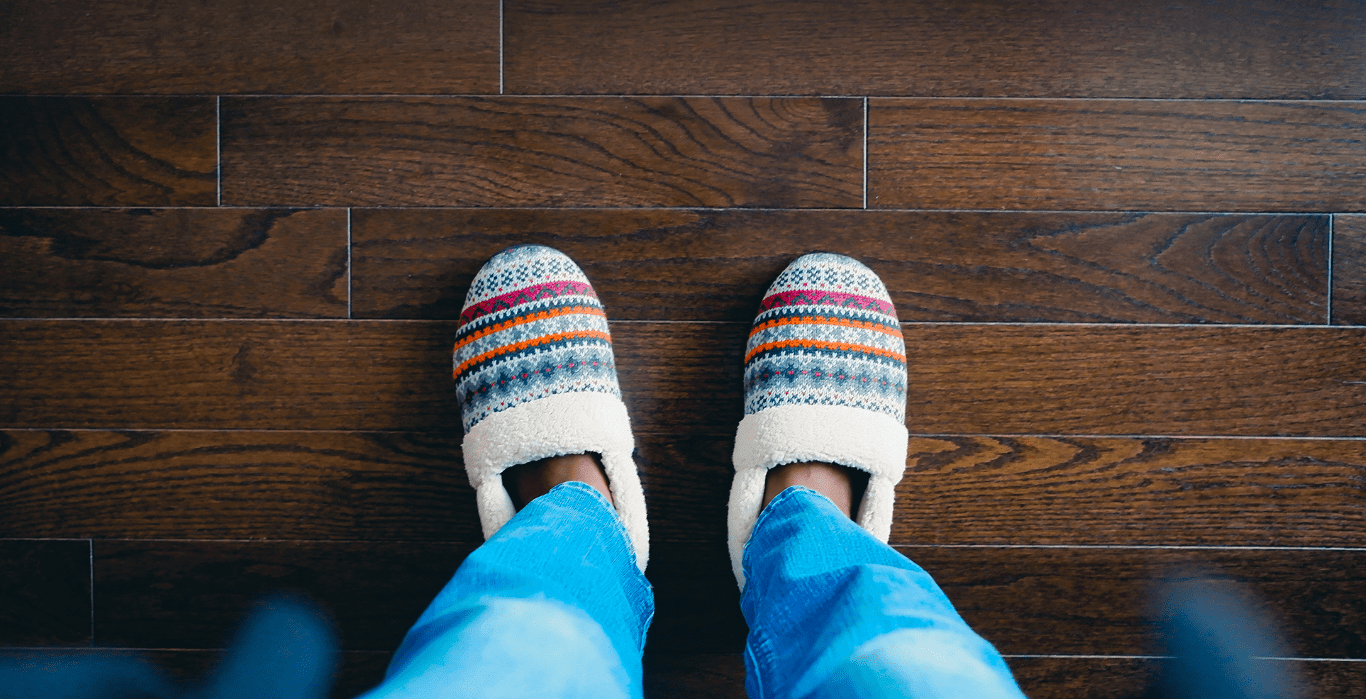Hardwood Types
At Hamernick’s, we carry many different types of hardwood flooring, each with its own advantages and considerations, such as your budget, the room’s conditions, and your preferred installation method. Let’s dive into the different types of hardwood flooring to help you make an informed decision for your home or business.
- Solid Hardwood
Solid hardwood flooring is the epitome of authenticity and timelessness. It is crafted from a single piece of wood, then cut and milled into planks of various sizes. This type of flooring offers the genuine feel and natural beauty of the wood species you choose. Solid hardwood can be sanded and refinished multiple times, making it a durable and long-lasting option. It is typically nailed or stapled down to a wooden subfloor, and its installation requires professional expertise.
- Engineered Hardwood
Engineered hardwood is a popular alternative to solid hardwood. It consists of a real wood veneer—a thin layer of the desired wood species—on top of several layers of high-quality plywood or high-density fiberboard (HDF). The layers are cross-directionally bonded, which enhances the flooring’s stability and resistance to moisture and temperature changes. Its versatility and ability to handle various subfloor types make it a favorite among homeowners.
- Glue-Down Hardwood
As the name suggests, glue-down hardwood flooring involves adhering each plank directly to the subfloor using a special adhesive. This installation method is common for both solid and engineered hardwood. Glue-down installation provides a strong and stable floor, and it’s often used in commercial settings or rooms with high moisture levels, such as basements or bathrooms. However, it can be a more involved and time-consuming process compared to floating or nail-down installations.
- Floating Hardwood
In this hardwood installation method, individual planks are not glued or nailed down to the subfloor. Instead, they interlock or adhere to each other, forming a “floating” floor above the subfloor. It is also common for both solid and engineered hardwood. Typically, a thin foam or cork underlayment is placed beneath the floating floor, providing cushioning and sound-dampening benefits. Floating hardwood is relatively easy to install, and it allows for some flexibility in case of subfloor irregularities.
Hardwood Finishes
Hardwood flooring offers a wide array of choices, each with its distinct character and benefits. From timeless oak and rustic hickory to luxurious cherry and eco-friendly bamboo, there’s a hardwood flooring finish to suit every taste and lifestyle.
- Oak
If you’re seeking a time-tested, sturdy, and versatile option, oak is your go-to choice. With its distinctive grain patterns and warm tones, oak flooring effortlessly complements any interior style, be it traditional or contemporary. This enduring classic can handle heavy foot traffic and is known for its durability, making it an ideal choice for active households.
- Maple
Maple hardwood flooring boasts a subtle, creamy hue that adds brightness and radiance to any room. Its fine, uniform texture makes it a popular choice for modern and minimalist designs. Maple is a hard-wearing option, resistant to dents and scratches, making it an excellent investment for families with children or pets.
- Cherry
If you’re looking to infuse your space with a touch of luxury, cherry hardwood flooring is your answer. Its reddish-brown hues deepen over time, lending a rich and luxurious feel to your home. Cherry is a softer wood, which means it may be more susceptible to dings, but with proper care, it develops a stunning patina that only enhances its charm.
- Walnut
For those who desire a floor that exudes sophistication and exclusivity, walnut hardwood is the perfect choice. Its deep, dark tones with intricate grain patterns create a refined and distinctive look. Although walnut is not as hard as oak, it makes up for it with its unparalleled beauty and opulence.
- Hickory
If you yearn for a more rustic, country-style vibe, hickory flooring is your best bet. With its wide range of colors, from pale whites to deep browns, hickory imparts a sense of natural charm. Renowned for its durability and strength, hickory is an excellent option for homes that require a robust flooring solution.
- Mahogany
Known for its luxurious appearance, mahogany hardwood flooring epitomizes elegance and class. With its reddish-brown hues and interlocking grain patterns, mahogany is a statement-making floor choice that adds a touch of opulence to any space.
- Bamboo
For environmentally conscious homeowners, bamboo flooring is a remarkable choice. Technically a grass rather than hardwood, bamboo matures quickly, making it a renewable and eco-friendly option. Available in various styles and colors, bamboo flooring provides a unique and eco-conscious touch to your home.
Hardwood Benefits
Hardwood flooring offers a plethora of benefits that make it a popular choice for homeowners. Let’s explore some of the key advantages:
- Timeless Elegance
Hardwood flooring exudes a timeless charm that never goes out of style. Its natural beauty, unique grain patterns, and rich colors add a touch of sophistication and elegance to any interior design, making it a valuable asset to your home.
- Durability and Longevity
High-quality hardwood floors are exceptionally durable and built to last for generations. When properly maintained, hardwood can withstand heavy foot traffic, resist scratches, and endure the wear and tear of daily life, making it a wise long-term investment.
- Easy to Clean and Maintain
Unlike many other flooring options, hardwood floors are relatively easy to clean and maintain. Regular sweeping and occasional mopping with a recommended hardwood floor cleaner is usually sufficient to keep them looking pristine.
- Increase in Property Value
Hardwood flooring is a desirable feature for potential homebuyers. Installing hardwood floors can increase the resale value of your home, making it an investment that pays off both in the present and the future.
- Heat Insulation
Hardwood flooring provides excellent heat insulation, helping to maintain a comfortable and cozy indoor environment during colder months.
Hardwood Services
At Hamernick’s, we offer expert hardwood flooring services, so you can rest assured knowing that your floors will be installed correctly, restored to their former glory, or transformed to match your desired aesthetics. Our hardwood flooring professionals have the knowledge, skills, and tools necessary to deliver beautiful and long-lasting results, making your investment in hardwood flooring truly worthwhile. Contact us today to discuss how we can make the most of your hardwood floors.
- Hardwood Installation
Hardwood flooring installation is a crucial process that requires precision and expertise to ensure the best results. Professional installers will assess your space, subfloor conditions, and moisture levels to determine the most suitable installation method, such as nail-down, glue-down, or floating.
- Hardwood Sanding
Over time, hardwood floors may show signs of wear, scratches, or surface damage. Sanding is a process where a professional uses specialized machinery to remove the top layer of the wood, including imperfections and old finishes, to reveal a fresh, smooth surface. Sanding can breathe new life into your hardwood floors, preparing them for refinishing or staining.
- Hardwood Staining
Staining is a service that offers homeowners the opportunity to change or enhance the color of their hardwood floors. During the staining process, a specially chosen wood stain is applied to the sanded surface of the floor. This can be done to achieve a darker or lighter shade, match the flooring to existing decor, or create a specific aesthetic that complements your style preferences.
- Hardwood Finishing
Finishing is the final step in the hardwood flooring process. Once the floor is sanded and stained (if desired), a protective finish is applied to seal the wood and protect it from moisture, stains, and daily wear. The finish also adds a lustrous sheen that enhances the floor’s appearance. Common types of finishes include polyurethane (water-based or oil-based), wax, and penetrating oil finishes. Each finish type offers different levels of durability and maintenance requirements.
